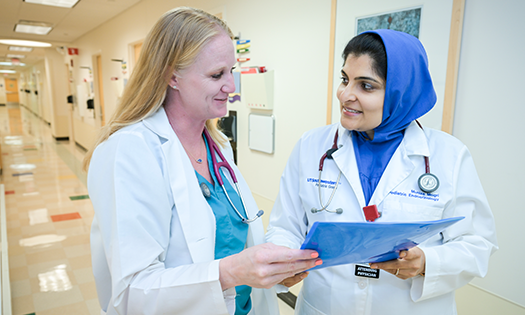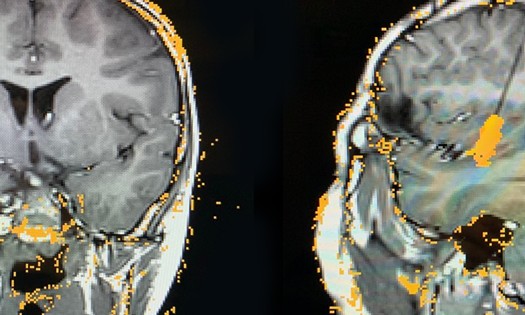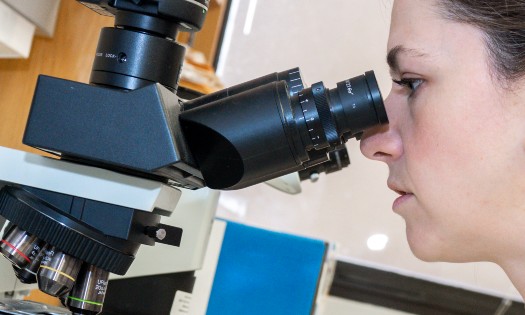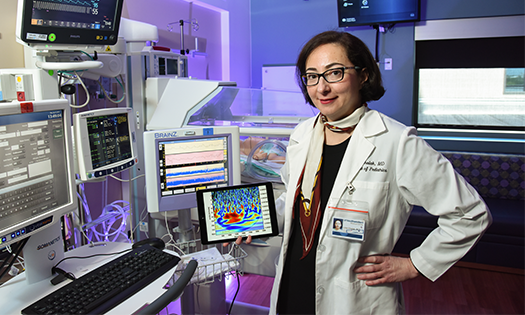This year, as you see student-athletes for routine physical exams and sports screenings, it’s important to ask a few questions about COVID-19 – especially for athletes who contracted the virus.
“A small number of athletes are developing heart complications after having the virus, especially those who had severe COVID-19 infections,” says Clarisa Garcia, M.D., Medical Director of Pediatric Cardiology Associates of Houston, a Children’s Health℠ Care Network Partner. “It's crucial to screen all patients before they return to their sport to help prevent serious cardiac complications.”
Following screening guidelines and knowing when to refer to a cardiologist is key. Learn best practices from Dr. Garcia and William Scott, M.D., Director of Cardiac Electrophysiology at Children’s Health and a Professor of Pediatrics at UT Southwestern.
1. What are the cardiac risks for people who’ve had COVID-19? What are the risks for these patients returning to sports?
In kids and teens, having symptomatic COVID-19 increases the risk of some heart complications including:
Arrhythmias
Abnormalities of arteries that feed the heart
Heart palpitations
Multisystem inflammatory syndrome in children (MIS-C)
Myocarditis
If an athlete has developed one of these complications as a result of COVID-19, participating in a sport could exacerbate the condition and lead to more serious complications.
“If a patient with those abnormalities tries to perform at the level of an athlete, it could lead to a sudden cardiac death or really major adverse event,” Dr. Garcia says.
2. What does the latest research tell us about myocarditis and other potential cardiac effects of COVID-19?
The virus is still new and more research is becoming available all the time. Some of the latest studies have shown that heart complications like myocarditis are less common than initially believed, especially among patients who had asymptomatic or mild (having a fever for less than three days) COVID-19 infections.
One early study suggested that as many as 15% of athletes developed myocarditis after COVID-19. Newer studies of patients who had mild to moderate COVID-19 infections are suggesting that number is closer to 1-4%.
“We’re seeing a range of data and scientists are still posing questions about if different variants make someone more likely to get myocarditis, or if it's a person’s genetic makeup that increases their risk,” Dr. Garcia says. “Overall, the latest information has been more optimistic regarding the cardiovascular effects on patients, particularly those who had asymptomatic or mild COVID-19.”
3. What pathway should you follow to know when a child can return to sports after COVID?
Dr. Garcia and Dr. Scott recommend following guidance from the American Academy of Pediatrics (AAP). These guidelines encourage different steps depending on how severe a patient’s COVID infection was and what symptoms they experienced.
Children with asymptomatic or mild COVID-19
This includes infections where a child had no symptoms or had symptoms including a fever for less than three days and loss of taste and smell. After the patient quarantines, they should go back to their pediatrician or primary care doctor to be screened for any cardiac concern.
Their doctor should ask if the patient experienced any cardiac symptoms after COVID-19, which include:
Chest pain
Shortness of breath
Fatigue
Irregular heartbeat
Fainting
If the patient says “yes” to any of these, their screening is considered positive. Those patients would need an EKG and a referral to a pediatric cardiologist. If patients who had mild or asymptomatic COVID-19 answer “no” to all of these questions, the AAP does not recommend EKG or referral to a pediatric cardiologist.
“We’re not generally concerned about asymptomatic COVID-19,” Dr. Scott says. “Some kids will have asymptomatic COVID-19 and go on to develop cardiac symptoms a few weeks later. But if they had it more than a month prior, with no cardiac symptoms, we’re not worried about them.”
Children with moderate COVID-19
A COVID-19 infection is considered moderate if a child has a fever for four days or more, chills, and severe muscle or body aches but wasn’t sick enough to be in the ICU.
“We are definitely recommending cardiac screening for these patients,” Dr. Garcia says. “They should have their routine physical exam and an EKG.”
Children with severe COVID-19
This includes patients who had very severe illness and were treated in the ICU and/or had MIS-C. These patients are thought to have much higher risk of having cardiac involvement. The AAP recommends that these patients not exercise for at least three to six months, to give their hearts time to heal and to ensure they can return to play safely.
“These patients all need to see a cardiologist,” Dr. Scott says. “We’ve followed the three to six-month guidelines for any child who has had heart inflammation, even before COVID-19. With rest, the heart can heal itself. But if you put stress on the heart, you can aggravate the condition and bring on a catastrophic event like an arrhythmia or a sudden cardiac event.”
4. As you screen student-athletes for sports participation this year, what should you ask about prior COVID-19 infection?
It’s important to ask every patient if they’ve had a prior COVID-19 infection, to understand if they may be at risk for cardiac complications. If they had the virus, follow-up questions related to cardiac health should include:
When you had COVID-19, were your symptoms mild (fever less than three days), moderate (fever for four days or more, body aches, chills) or severe (hospitalized for the virus)?
Did you have any cardiac symptoms? This includes chest pains, shortness of breath, fainting and dizziness.
Have you had any ongoing symptoms after recovering from the virus? Are you having any ongoing cardiac symptoms of fatigue?
Has having COVID-19 caused a change in performance in your sport?
In terms of change in performance, this is more than just being out-of-shape after a break from the sport.
“If an athlete says, ‘I used to be able to run a mile in 10 minutes and now it takes me 15,’ that’s an indication of change in performance,” Dr. Garcia says. “We know that a lot of athletes are having some change in performance because of deconditioning that came along with quarantine and not being as active. But if there's really a significant difference, then we definitely want to pay attention to that as it could be a sign of decreased cardiac function.”
Dr. Garcia also noted that it's important to ask patients of all ages these questions.
“Especially in Texas, we have a lot of young children that participate in very competitive sports,” she says. “We want to make sure that we’re asking this to all age levels competing in any kind of sport.”
5. In athletes who had COVID-19, when should you refer to a pediatric cardiologist prior to play?
Early cardiac screening can help identify heart problems and help athletes take the right steps to prevent serious complications. Referring a child for a cardiac screening typically depends on severity of their COVID-19 infection:
Asymptomatic or mild: You would typically send them to a cardiologist if they had any cardiac symptoms related to COVID-19 or if they have persistent cardiac symptoms even after resolution of their COVID-19 symptoms.
Moderate: All patients with moderate COVID-19 should see a cardiologist and get an EKG.
Severe: Any patient who has a severe illness needs follow-up care from a cardiologist.
Patients who have had severe infections typically need the most monitoring before returning to sport.
“Many patients who have had severe COVID-19 will have already seen cardiology while they were in the hospital and have an established care plan, but not all of them have a clear care plan after discharge,” Dr. Garcia says. “As pediatricians, it's very important to find out if they have a plan to go back and see cardiology. If they don’t, get them scheduled.”
Dr. Garcia also had some advice for pediatricians who might be debating whether to refer.
“If you have any concern at all, go ahead and refer and proceed with testing,” she says. “It doesn’t cause any harm to have a cardiac evaluation just to make sure athletes are safe to return to play and help prevent some of the most adverse complications.”
6. Are there any precautions physicians should encourage athletes to take before returning to play after COVID-19?
Precautions we’ve been taking since the beginning of the pandemic are still important: Wash hands regularly and don’t go to practice or be around others if you’re feeling sick. We are also recommending that all eligible student-athletes get vaccinated.
“The data about vaccination is crystal clear, these vaccines are highly effective,” Dr. Scott says. “Over 95% of deaths related to COVID-19 in the last few months have been in individuals not vaccinated. There is a new surge in cases particularly in communities where less than 40% of the individuals are vaccinated.”
7. There have been rare reports of myocarditis after the COVID-19 vaccine. What should pediatricians know about this?
Based on recommendations from the Centers for Disease Control and Prevention (CDC), we are still recommending everyone who is eligible get the COVID-19 vaccine.
“Myocarditis after vaccination has occurred at a frequency of less than one in a million,” Dr. Scott says. “Myocarditis in the general population occurs more frequently than that, so it's even possible that a few of these kids happened to get the vaccine and myocarditis around the same time.”
As a precaution, physicians and families should be aware of the signs of myocarditis, which include chest pain, shortness of breath, dizziness and fatigue.
“It comes down to risks versus benefits: COVID-19 can lead to severe infection with myocardial involvement,” Dr. Garcia says. “We now know almost all the rare cases of myocarditis related to the vaccine have been mild and have been treated. Severe cases of COVID-19 with cardiac involvement have had much worse outcomes.”
Learn more about innovative cardiology care and research at Children’s Health.



